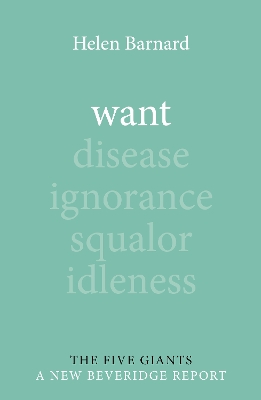Giants: A New Beveridge Report
1 total work
When a nation endures a collective ordeal, it does not emerge unchanged. There is fear, loss, renewal. The Britain that emerged from the ravages of the Second World War was not the country that had entered it. William Beveridge saw this as an opportunity for real societal change, most importantly for the eradication of want. His Report famously set out a plan to ensure that people could meet their essential needs and no longer starve or face penury, if they lost their jobs or fell on hard times.
In 2020, we entered a collective ordeal. The Covid-19 pandemic brought fear and loss in abundance. It was those who were already struggling who were hit hardest by the storm. The precariousness of modern life has been laid bare. With death rates twice as high in the most deprived areas and job losses concentrated among low-paid, insecure workers; few had savings to tide them over. Foodbanks were stretched as people, who had just been keeping their heads above water, found themselves relying on charity to feed their children. Universal credit claims soared. The pandemic demonstrated how our social and economic structures trap those at the bottom in constant job insecurity, ill health, overcrowded housing and educational disadvantage. We must design better support systems to free every one of us from the crushing treadmill of poverty.
Yet, it was also a period in which we demonstrated our collective strength. Improvements to social security and housing, which had been logjammed for years, were suddenly pushed through in days. The homeless were taken off the street and given shelter. Low-paid workers previously dismissed as unskilled were revealed to be the backbone of Britain. Neighbourhoods pulled together to shield and help the vulnerable. Fundamental shifts in our behaviours and values have made us aware of what can be achieved when as a community we put our collective will into action.
In a nuanced and carefully constructed argument, Helen Barnard asks what it takes to slay "Want" in modern Britain and explores what we can learn from our past to build a better, fairer, more equal and more hopeful society.
